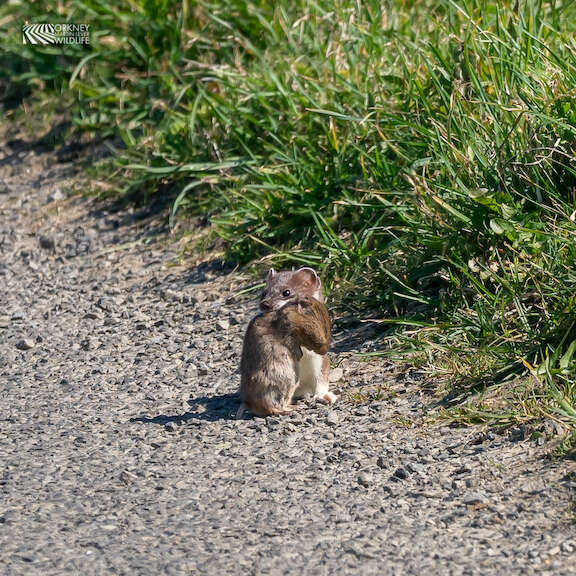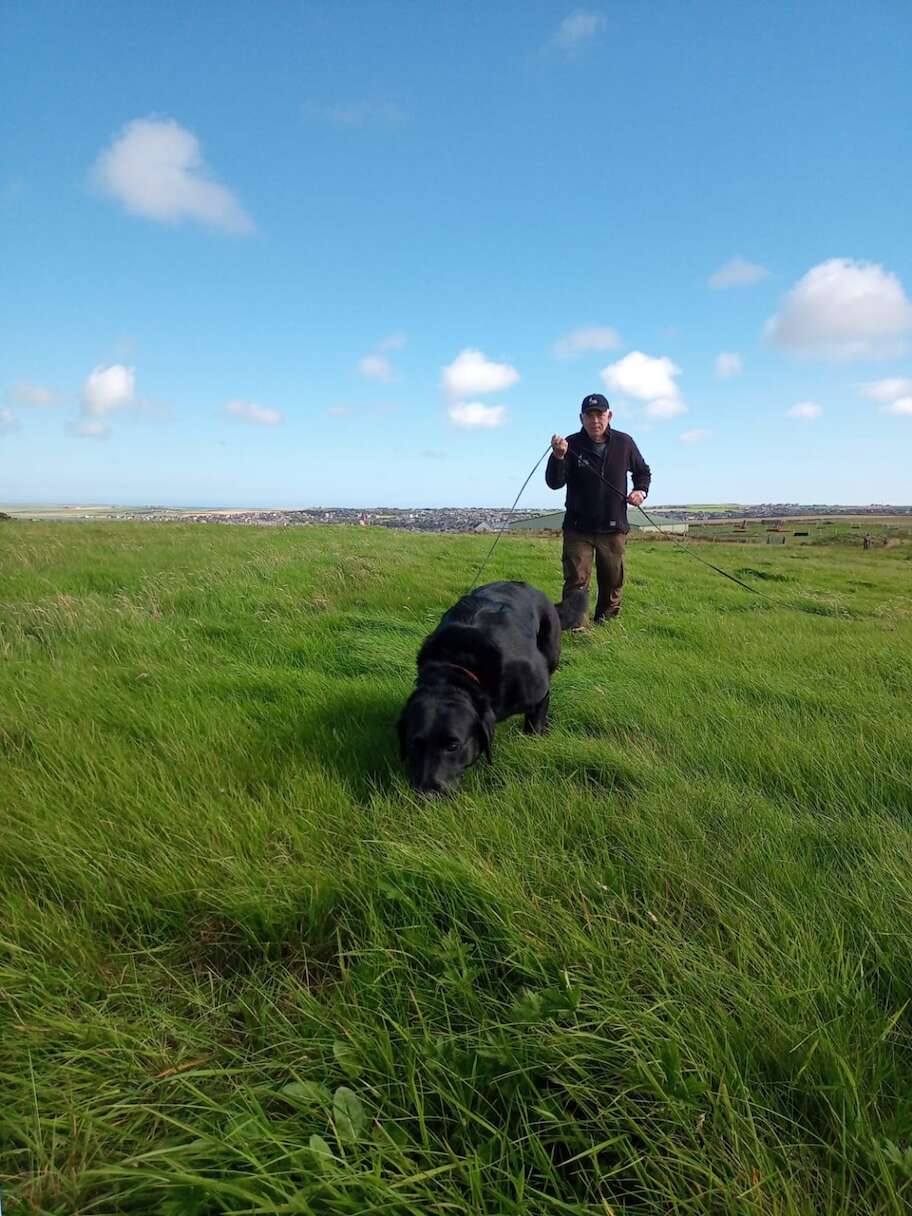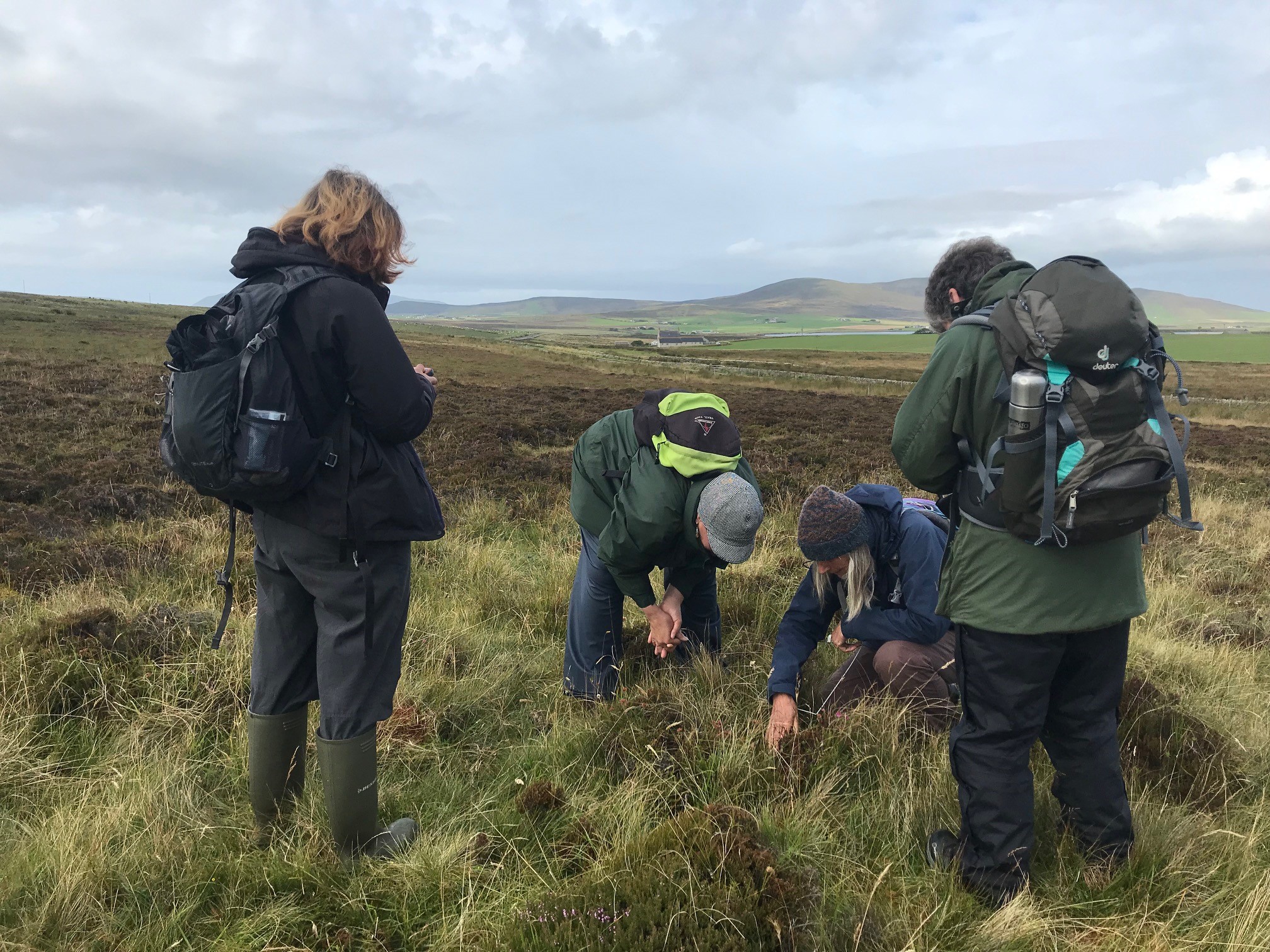Trapping update
It’s that time of the year when we update everyone on our trapping statistics over the past quarter. The trapping team in Deerness and Tankerness has been split between the regular checks of over 6,000 trap boxes in the network and swift responding to the stoat sightings sent into us. The stoat sightings are crucial to helping us catch those elusive trap-shy stoats. You can see this increase in deployed traps in the statistics below.
 There has been a massive reduction in the stoat population after the last few years with nearly 3,500 stoats caught since project trapping began in August 2019. Any stoat sightings sent into us really helps the team find and detect the stoats that are left. The quicker you tell us when and where you saw the stoats the more effective our response is so, please do let us know the details as soon as you see a stoat. Some areas of Orkney are more stoat ‘hotspots’ than others and the terrain over at Mullhead is one such area very attractive to stoats.
There has been a massive reduction in the stoat population after the last few years with nearly 3,500 stoats caught since project trapping began in August 2019. Any stoat sightings sent into us really helps the team find and detect the stoats that are left. The quicker you tell us when and where you saw the stoats the more effective our response is so, please do let us know the details as soon as you see a stoat. Some areas of Orkney are more stoat ‘hotspots’ than others and the terrain over at Mullhead is one such area very attractive to stoats.
The invasive non-native stoats in Orkney are not as shy as they are in the rest of the UK. So, it would be easy to watch and send onto us how many were seen, which direction they travelled in, and what they were doing. For instance, were they disappearing into a den or carrying food. A short video taken on a smart phone of what they are doing would be most welcome too! All this detail and an accurate grid reference is priceless information for the trap team and helps them amend the network successfully.
We always welcome your sightings of stoats so do please send them into us as soon as possible. You can pop them through our website or, if the phone signal isn’t great, just give us a call on 01856 881451 and someone will be happy to take the details.
June 2022 | July 2022 | August 2022 | Sept 2022 | Project total *** | |
Trap boxes deployed in the field | 47 | 136 | 128 | 33 | 6,515 |
Individual traps checked* | 8,995 | 7,408 | 9,314 | 7,036 | 255,756 |
Stoats caught** | 73 | 189 | 210 | 159 | 3,446 |
* Many trap boxes contain two traps
** The stoats are killed using a type of lethal, humane trap – the DOC 200 – which is approved by the Spring Trap Approval Order for Scotland and the UK and meets the welfare standards defined by the Agreement on International Humane Trapping Standards (AIHTS).
*** Total statistics start date from 1 August 2019.
The wire-tied entrances to the trap boxes have significantly reduced the numbers of other animals being caught. However, there are occasions when some small animals still find their way into trap boxes. However, these incidents remain incredibly rare in the context of the large number of traps and trap checks. Nor will these isolated incidents have a significant impact on the overall population of this other wildlife compared to the impact of stoats on our native wildlife.
Since the end of June 2022 until end of September, there have been 32,753 trap checks. In addition to the 631 stoats caught, an additional 767 rats, 327 rabbits, 18 mice, 8 hedgehogs, 38 voles and 64 starlings have been found in the trap boxes in those four months.
Tracking dogs complete the team

The stoat detection dog team was reinforced by two tracker dogs last month to bring the project total to six conservation dogs.
The latest arrivals to join us are tracker dog Red, and Sky, a stoat scat detection dog. Spud, who joined the project in May 2021 as a stoat detection dog, has also recently returned to Orkney after being retrained as a tracker dog.
The new arrivals, Red and Sky, will spend their first month getting used to the Orkney environment, and bonding with their handlers before working in the field. The squad will work on a mix of island biosecurity on high-risk islands close to the Orkney Mainland, in addition to supporting the project’s eradication.
Chris Bell, ONWP Biosecurity Officer added: “A dog’s nose has between 220,000 and 300,000 receptor cells compared to only 5,000 in a human nose. As a dog’s brain can process those smells up to 60 times more than humans, our dog teams are an exceptional asset. Alongside crucial public sightings and the support from island communities, the dog teams give us the strongest possible early warning system to any signs of stoats on the high-risk islands. The dog teams also demonstrate absence of stoats more efficiently and effectively than human searches alone.”
These highly trained working dogs are trained to not hunt or attack stoats and will always be controlled by their ONWP dog handlers, now increased to a team of four from the original three.
The dog team are currently checking the parish of Deerness following the spring/summer trial of the next stage of trapping methods. The dog team will search this month and again in December looking for signs of stoats after the extra trapping response activity this summer as part of the trail of methods to catch the last remaining stoats in the area. This ‘mop-up’ phase of the eradication will mean a shift in trapping methods to catch the ‘trap-shy’ stoats. Watch this space for the what happens next in the new year!


 We are used to our fabulous volunteers donating their time to help us save Orkney’s native wildlife. This year alone our vole detectives donated 152 hours of their free time to survey the elusive mammal for which we are hugely grateful. There are many ways to help and volunteer but in case the preference is to empty a piggy bank then we have just launched a new donation button on our website which will lead to a secure online donation page.
We are used to our fabulous volunteers donating their time to help us save Orkney’s native wildlife. This year alone our vole detectives donated 152 hours of their free time to survey the elusive mammal for which we are hugely grateful. There are many ways to help and volunteer but in case the preference is to empty a piggy bank then we have just launched a new donation button on our website which will lead to a secure online donation page.